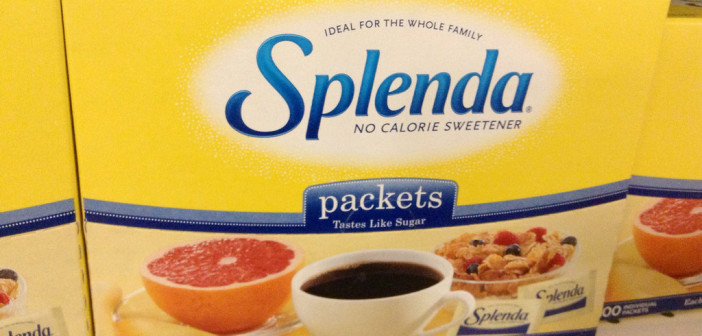In the past decade, artificial sweeteners have been deemed a substantial substitute for ordinary sugar. Many individuals have been using artificial sweeteners such as Splenda to sweeten their drinks, or favorite recipes without the burden of calories. As ideal as artificial sweetening sounds, it actually has proved to be somewhat unhealthy.
In this day in age, it’s hard to grocery shop without spotting labels that read “diet” or “sugar free”. It is hard not to purchase these items without assuming they are the healthier alternative. Yet, this is not always the case as a lot of these “diet” or “sugar free” products contain artificial sweeteners. Generally, these sweeteners are used to combat excessive calories, prevent dental issues, and can be used as a sugar substitute for those who are diabetic.
However, it is important to note that these artificial substitutes also have some down sides. According to an article titled “Why artificial sweeteners are bad for you and the planet” from the health section of How Stuff Works, “Recent research suggests that Splenda can enlarge both the liver and kidneys and shrink the thymus glands. Sucralose (Splenda) breaks down into small amounts of dichlorofructose, which has not been tested adequately on humans. Splenda reportedly can cause skin rashes, panic, diarrhea, headaches, bladder issues, stomach pain, and those side effects don’t even sum it up.”
Additionally, studies have suggested that these same sugar substitutes also cause cancer in some instances. The Mayo Clinic recently produced an article that gives both the negatives and positives of these artificial sweeteners.
This includes the argument as to whether or not these sweeteners actually cause cancer. In the article titled, “Artificial sweeteners and other sugar substitutes” Mayo Clinic states that “Artificial sweeteners have been the subject of intense scrutiny for decades. Critics of artificial sweeteners say that they cause a variety of health problems, including cancer. That’s largely because of studies dating to the 1970s that linked saccharin to bladder cancer in laboratory rats. Because of those studies, saccharin once carried a warning label that it may be hazardous to your health.”
It seems as this is still an ongoing debate amongst health moguls and could use additional research. However, in the mean time you can still substitute sugar in a safety guaranteed manner. For instance, sugar substitutes such as Truvia are great in place of sugar because they are stevia-based. Thus, making them a bit more natural than other artificial options.

